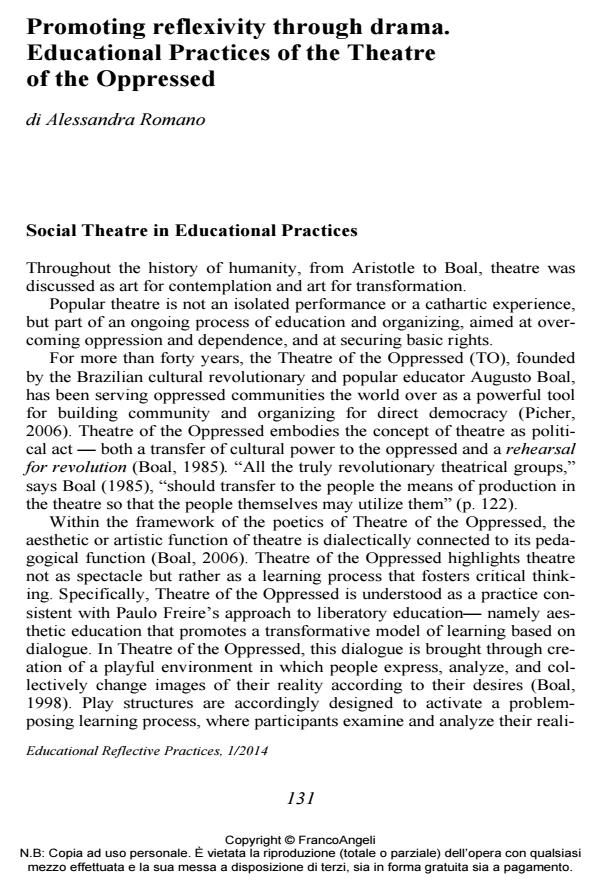Promoting reflexivity through drama. Educational Practices of the Theatre of the Oppressed
Titolo Rivista EDUCATIONAL REFLECTIVE PRACTICES
Autori/Curatori Alessandra Romano
Anno di pubblicazione 2015 Fascicolo 2014/1
Lingua Italiano Numero pagine 15 P. 131-145 Dimensione file 59 KB
DOI 10.3280/ERP2014-001008
Il DOI è il codice a barre della proprietà intellettuale: per saperne di più
clicca qui
Qui sotto puoi vedere in anteprima la prima pagina di questo articolo.
Se questo articolo ti interessa, lo puoi acquistare (e scaricare in formato pdf) seguendo le facili indicazioni per acquistare il download credit. Acquista Download Credits per scaricare questo Articolo in formato PDF

FrancoAngeli è membro della Publishers International Linking Association, Inc (PILA)associazione indipendente e non profit per facilitare (attraverso i servizi tecnologici implementati da CrossRef.org) l’accesso degli studiosi ai contenuti digitali nelle pubblicazioni professionali e scientifiche
This article is about a still-in-progress research experience that explores the transformative potential of the methods of Boal’s Theatre of the Oppressed. In this exploratory study, more than 60 students were involved in experential workshops with the Theatre of the Oppressed within the setting of university classroom. The aim was to adopt the methodologies and the techniques of Forum Theatre and of Journal Theatre as educational tools to promote reflexivity and transformation in undergraduate students. The results of the analysis of the study confirmed researchers’ hypothesis, showing empirically that the Theatre of the Oppressed could be a useful educational practice not only in informal educational contexts, but specially in formal university contexts.
- Theory and Practice for Understanding Process and Outcomes of Transformative Learning Claudio Melacarne, Alessandra Romano, in EDUCATIONAL REFLECTIVE PRACTICES 2/2019 pp.214
DOI: 10.3280/ERP2018-002014
Alessandra Romano, Promoting reflexivity through drama. Educational Practices of the Theatre of the Oppressed in "EDUCATIONAL REFLECTIVE PRACTICES" 1/2014, pp 131-145, DOI: 10.3280/ERP2014-001008